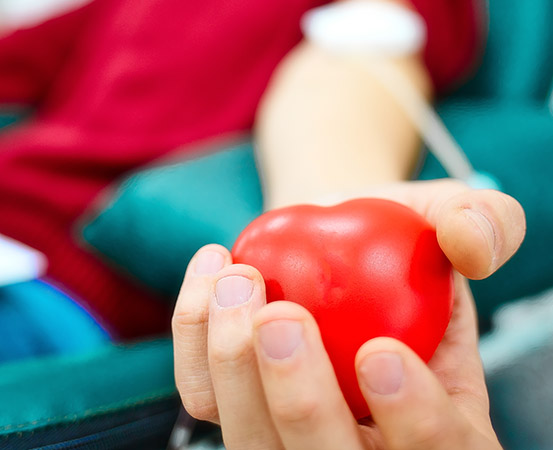
Donating blood is an altruistic act that saves countless lives worldwide. But doing so might be difficult for those with type 1 and type 2 diabetes due to certain restrictions. Strict blood sugar control coupled with appropriate preparations and post-donation precautions can, however, ensure a safe donation process for both the donor and the recipient, say experts. They add that recipients will not develop the condition if they receive blood from people with diabetes.
In addition, recent research states that a reduction of iron levels in the body following blood donation enhances insulin sensitivity, which can temporarily improve insulin production and glucose tolerance.
Can people with diabetes donate blood?
Dr Anoop P, Sr. consultant, hematology, hemato-oncology, pediatric hemato-oncology & bone marrow transplant, Aster CMI Hospital, Bengaluru, says many urban blood banks disqualify donors if they have diabetes or are on medications. “There is no scientific evidence to do so. It is highly unlikely that blood taken from an individual with well-managed blood sugar levels will adversely affect the recipient. These are just assumptions that if one is taking anti-diabetic medicines, their blood will contain some amount of it that can potentially lower blood sugar levels in the recipient,” he says. People with well-controlled type 2 diabetes and hypertension need not abstain from blood donation, provided the blood bank accepts it, he adds.
Blood banks are usually reluctant to accept blood from those with uncontrolled diabetes to ensure the well-being of both the donor and the recipient. Dr Vinayak Hiremath, executive director, chief medical officer & consultant at the department of internal medicine, endocrinology & diabetes, KMK Hospital, Kochi, says blood glucose levels in people with type 1 and type 2 diabetes can fluctuate, affecting their eligibility for blood donation. “Furthermore, certain drugs used to manage diabetes and associated complications can also have an impact on an individual’s capacity to donate blood. Hence, they are usually not recommended to do so as it can affect their health,” he explains.
Type 1 diabetes and blood donation
Type 1 diabetes, typically diagnosed in children or young adults, necessitates daily insulin administration. Dr Hiremath says, “Due to fluctuating blood sugar levels and other associated complications (like retinopathy, neuropathy, cardiovascular conditions and infection susceptibility), people diagnosed with the condition encounter more obstacles when it comes to blood donation.”
In addition, Dr Anoop explains that their blood may contain an increased amount of insulin, which can theoretically reduce the recipient’s blood sugar levels. “Again, there is no robust scientific evidence for it. However, to be on the safe side, blood banks may not accept donation if you have type 1 diabetes,” he says.
Type 2 diabetes and blood donation
Dr Hiremath says blood donation constraints for people with type 2 diabetes depend on the severity of the ailment and their treatment plan. “In case they have other associated comorbidities besides uncontrolled diabetes, removing 350 to 400 ml of blood may sometimes cause instability or dizziness in the donor,” says Dr Anoop.
He further explains that the requirements of blood banks also depend on demand and supply. “If there is a shortage of a particular blood group in a region, they might accept blood from an individual with diabetes. However, if there is sufficient availability, they may deny the same,” he says.

What do the guidelines say?
National legislations and organisations provide certain eligibility criteria for blood donation to ensure the well-being of both the donor and the recipient. Some essential guidelines followed by different countries include:
♦ National Blood Transfusion Council, India
- People with diabetes can donate blood if the condition is controlled by diet or oral drugs.
- People who are insulin dependent cannot donate blood.
♦ American Red Cross Society
- People with a chronic condition like diabetes can only donate blood if they are being treated and the condition is under control.
♦ NHS Blood and Transplant, UK
- People with diabetes can donate blood if the condition is controlled by diet alone or if they have been taking the same dose of the same medication for four weeks or more.
- People cannot donate blood if they need regular insulin treatment or have taken insulin within the last four weeks.
- Individuals cannot donate blood if they have suffered from heart failure and other associated comorbidities.
Takeaways
- People with diabetes may find it challenging to donate blood, as several blood banks may not accept it. However, those with well-managed blood sugar levels can do so, provided they take the necessary precautions, say experts.
- Certain drugs used to manage diabetes and its comorbidities can have an impact on an individual’s capacity to donate blood.
- The requirements of blood banks also depend on demand and supply. They may accept blood from someone with diabetes if there’s a shortage of a blood group in a particular region.
- People with diabetes should closely monitor their blood glucose levels before and after donating blood to prevent complications like hypoglycemia. In addition, they should also take adequate rest and look out for signs of infection at the injection site.
















